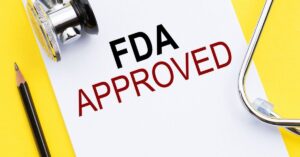 FDA Approval Doesn’t Guarantee Safety
FDA Approval Doesn’t Guarantee Safety
The Food and Drug Administration (FDA) is a federal agency responsible for regulating the sale of medical devices in the United States to protect public health. Medical devices must go through a rigorous approval process with the FDA to be sold to medical professionals and consumers. However, FDA approval does not necessarily mean that a medical device is safe. In recent years, several cases of medical devices have been recalled due to safety concerns. Here’s what you need to know.
How Does the FDA Regulate Medical Devices?
FDA’s authority over medical devices is derived from several laws, including the Federal Food, Drug, and Cosmetic Act (FD&C Act) and the Medical Device Amendments of 1976 (MDA). Under these laws, the FDA has broad authority over all aspects of the development and marketing of medical devices. The FDA process aims to ensure all medical devices are safe and effective for their intended use.
How Do Medical Devices Get Approved for Use?
The FDA approval process begins with a manufacturer submitting an application to FDA. FDA will then review the application to determine whether the device is safe and effective for its intended use. If the FDA determines the device meets its safety standards, it will issue an approval letter to the manufacturer.
How Do Defective Medical Devices Make it to the Market?
The FDA has faced criticism for poorly handling medical device approvals in the past. In 2016, the FDA was criticized for approving a device called Essure, which is a permanent birth control device. Essure caused severe side effects, including pain and bleeding. The FDA did not revoke its approval of the device until 2018 after it had received more than 5,000 complaints.
Some recent examples of medical device recalls include but are not limited to:
- Paragard IUDs
- Elbow Radial Heads
- Ankle STAR Implants
- Zimmer Biomet Shoulder Replacement
- CPAPs
- Ventilators
- Surgery Staplers
Medical devices are essential for many people, but it is vital to remember they are not always 100% safe. It is necessary to consult with your doctor before using any medical device and to report any problems you may have with a device to the FDA.
Get Help After a Defective Medical Device Injury
When choosing a lawyer, it’s crucial to select someone with experience handling cases that involve defective medical devices. The legal team at has successfully represented many clients who’ve been injured by defective medical devices. Our attorneys can help you investigate the incident, gather evidence, and file a claim.
You should not have to suffer because of someone else’s negligence. Contact a defective medical device attorney today to discuss your case. Houssiere Durant & Houssiere, LLP is ready to hold the responsible parties accountable. We will fight hard to get you the compensation you deserve.
Contact our national lawyers today at (800) 914-2894 for a free consultation.

